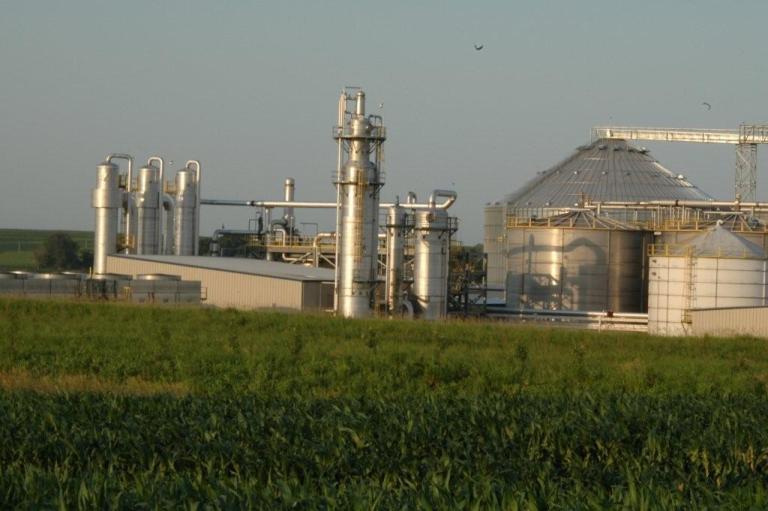Coalition Pushes Ethanol Waiver
In the midst of what may turn out to be the nation’s worst drought in about 70 years, a diverse coalition of livestock and poultry organizations is petitioning the Environmental Protection Agency (EPA) to waive the Renewable Fuels Standard (RFS) for the rest of 2012 and for an appropriate portion of 2013.

In the midst of what may turn out to be the nation’s worst drought in about 70 years, a diverse coalition of livestock and poultry organizations is petitioning the Environmental Protection Agency (EPA) to waive the Renewable Fuels Standard (RFS) for the rest of 2012 and for an appropriate portion of 2013.
The goal is to free up shrinking corn supplies for livestock and poultry feeders as this year’s drought increasingly reduces prospects for what once was forecast to be one of the largest corn crops in history.
The RFS requires 13.2 billion gallons of corn-based ethanol to be produced in 2012 and 13.8 billion gallons in 2013. According to the National Pork Producers Council (NPPC), one of the petitioners to the EPA, the RFS will gobble up about 4.7 billion and 4.9 billion bushels, respectively, of the nation’s corn supply in those two years.
“America’s pork producers are extremely worried, given the drought affecting much of the corn-growing regions, about having feed for their animals,” says NPPC President-Elect Randy Spronk, a pork producer and corn grower from Edgerton, MN. “And their anxiety is compounded knowing that the RFS requires corn ethanol to be produced no matter what. We’re asking EPA to give livestock and poultry producers and, ultimately, consumers a little help.
At the end of July, USDA downgraded crop estimates, rating 24% of the corn crop in good or excellent condition and 48% in poor or very poor condition. USDA also downgraded the soybean crop, rating just 29% in good or excellent condition and 37% in poor or very poor condition.
Ethanol’s Impact
Thomas Elam, president of FarmEcon, LLC, an Indianapolis, IN-based agricultural economics firm, says waiving the RFS for the remainder of 2012 and into 2013 will provide relief for America’s producers.
“It offers a safeguard against the possibility that this corn crop could be so short that it could cause an even more devastating loss than the one that we envision today, and cause further economic harm to the livestock and poultry industries of this country and the rest of this world,” he says.
Elam downplayed the recent policy brief issued by the Center for Agricultural Research and Development (CARD) at Iowa State University that indicated relaxing the ethanol mandate would have modest impacts on corn prices.
He says the CARD study forecasted that a 100% waiver of the ethanol mandate would only cause a 5% reduction in the price of corn, still a significant savings of about $1 billion to the food industries.
Elam says agricultural economist Bruce Babcock, lead author of the CARD study, based his forecast on a 138-bu./acre average corn yield. Elam says it’s very likely that the worsening drought will produce average corn yields in the 120-125 bu./acre range when the final crop production reports are in.
“We simply feel that his (Babcock’s) yield forecast was too high, and the impact he projected (from the RFS) is significantly below what is possible,” Elam observes.
J.D. Alexander, a Nebraska cattleman and president of the National Cattlemen’s Beef Association (NCBA), offered support for American ethanol, citing what it has done for the rural communities in Nebraska and the ability to access byproducts derived from ethanol production.
But he also had blunt words for USDA in relaying NCBA’s views of the government-mandated RFS program.
“We do not stand for federal mandates picking winners and losers. We do not stand for manipulation of corn prices. We do not stand for a federal government sitting by patiently forking over taxpayer dollars to artificially inflate the price of corn for livestock producers and other end users.
“We also find it concerning to the viability of the livestock industry that these mandates are allowed to continue today in the worst drought that I have seen in my lifetime, as 70% of cattle country is under drought.
“This is not isolated to a certain part of the country. This isn’t rocket science. Let the market work and embrace free-market principles and implement the (RFS) waiver. I am not asking for a handout. I am asking for the federal government to let the market work,” Alexander says.
NPPC’s Spronk says some pork producers are sourcing corn supplies from outside the country to make ends meet.
About the Author(s)
You May Also Like





